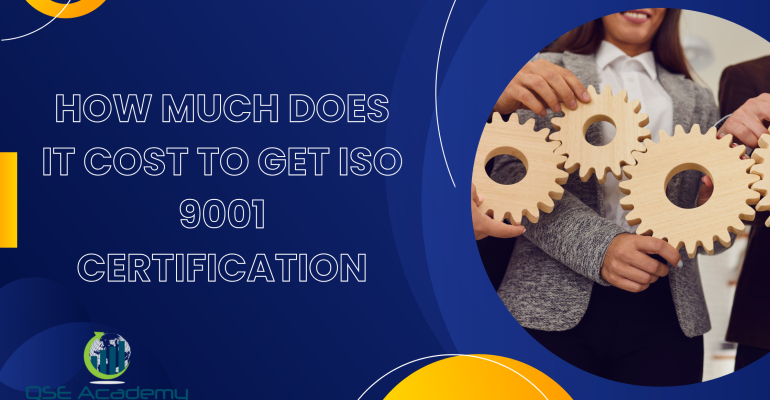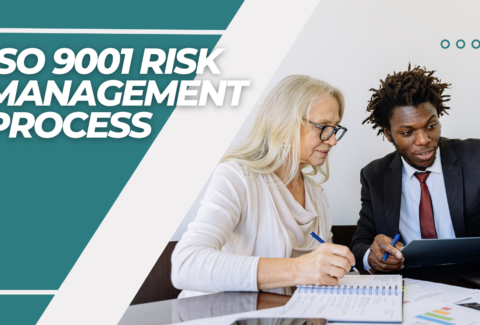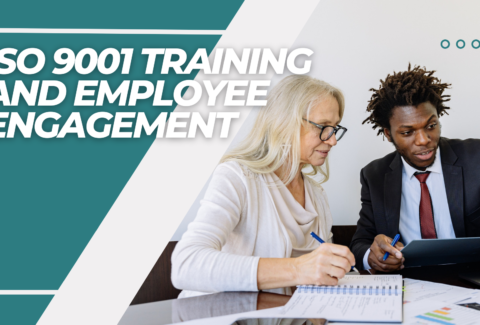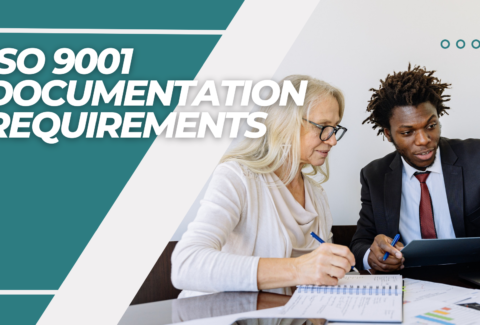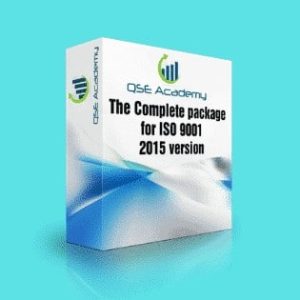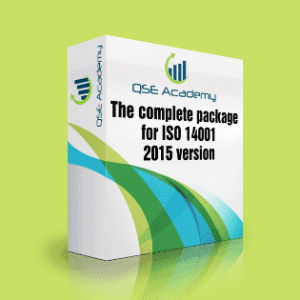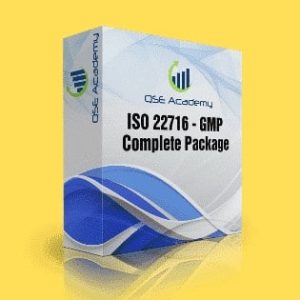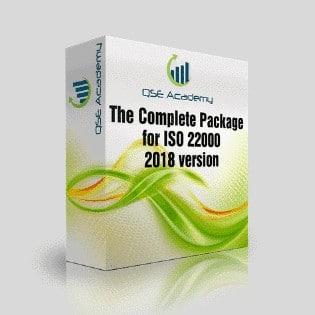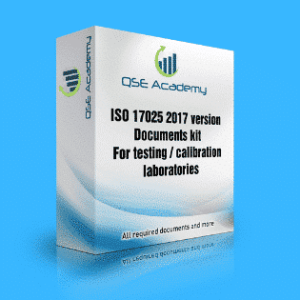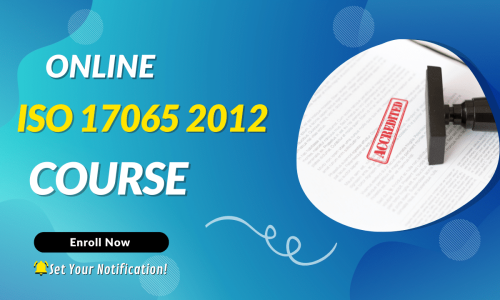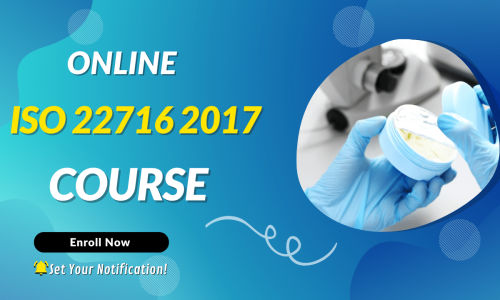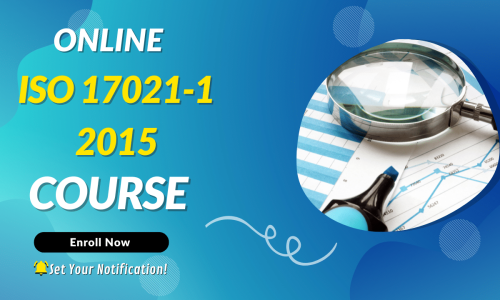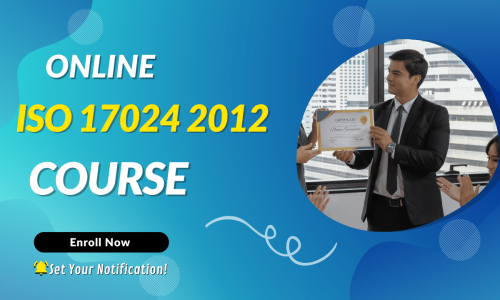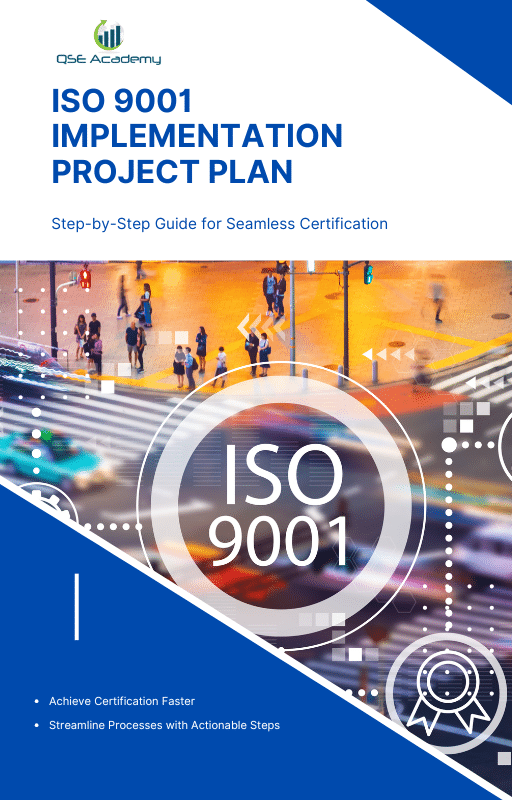How much does it cost to get ISO 9001 certification?
How much does it cost to get ISO 9001 certification?
If you’re considering improving your business’s quality management system, you’ve probably asked yourself: “What’s the actual cost to get ISO 9001 certification?” It’s a fair question because while the benefits of certification—such as increased efficiency, customer trust, and new business opportunities—are well known, the costs can vary widely.
The truth is, there’s no single price tag for ISO 9001 certification. The total cost depends on factors like your company’s size, the complexity of your processes, whether you hire a consultant, and the certification body you choose. Some businesses spend just a few thousand dollars, while others invest tens of thousands.
So, is it expensive? And more importantly, is it worth it? In this guide, we’ll break down the cost to get ISO 9001 certification step by step. We’ll explore the main cost components, what influences the price, and ways to save money on certification. By the end, you’ll have a clear understanding of what to expect—and how to budget wisely for this important investment.
Let’s dive in!
Understanding the Costs of ISO 9001 Certification
Before we dive into the numbers, let’s talk about why there’s a cost to get ISO 9001 certification in the first place. Unlike a simple business license, ISO 9001 isn’t just a one-time fee—it’s a structured process that involves training, system improvements, audits, and ongoing compliance.
Think of it like remodeling a house. The more complex the project, the higher the cost. In the same way, your business’s size, industry, and current processes all influence the total price of ISO 9001 certification.
So, where does the money actually go? Here’s a breakdown of the key expenses:
Key Cost Components of ISO 9001 Certification
1. Training and Documentation Development
One of the first steps in becoming ISO 9001 certified is learning the requirements of the standard and creating the necessary documentation. This might involve:
✔ Purchasing ISO 9001 materials (official standards, training guides, templates).
✔ Enrolling employees in training programs to understand compliance.
✔ Developing quality policies, procedures, and manuals from scratch.
💰 Estimated Cost: $500 – $10,000, depending on whether you use online training, in-house resources, or hire an expert.
2. Implementation Costs (Process Updates & Internal Audits)
Once you understand ISO 9001 requirements, you’ll need to update business processes to align with the standard. This stage often involves:
✔ Revising workflows to improve efficiency and compliance.
✔ Training staff on new quality management procedures.
✔ Conducting internal audits to identify and fix potential issues.
💰 Estimated Cost: $1,000 – $15,000, depending on the size of your business and the complexity of changes needed.
3. Certification Audit Fees (External Auditor Costs)
The most significant cost to get ISO 9001 certification comes from hiring a certification body—an independent, accredited organization that performs the final audit and issues the certification.
✔ Stage 1 Audit – The auditor reviews your documentation and readiness.
✔ Stage 2 Audit – The auditor conducts an on-site assessment to verify compliance.
💰 Estimated Cost:
- Small businesses (1-50 employees): $3,000 – $8,000
- Medium businesses (50-250 employees): $8,000 – $20,000
- Large businesses (250+ employees): $20,000 – $50,000+
🔹 Tip: Get quotes from multiple certification bodies to compare pricing.
4. Ongoing Compliance and Maintenance Costs
ISO 9001 certification isn’t a one-and-done deal. To maintain compliance, businesses must undergo annual surveillance audits and continually improve their Quality Management System (QMS).
✔ Annual surveillance audits – Required to keep your certification valid.
✔ Employee refresher training – Ensures staff continues to follow ISO 9001 principles.
✔ Process improvements and documentation updates – Helps maintain quality and compliance.
💰 Estimated Cost: $1,000 – $10,000 per year, depending on business size and complexity.
Why the Cost to Get ISO 9001 Certification Varies
Not all businesses will spend the same amount. Factors like company size, industry regulations, and whether you use consultants can impact your final certification cost.
- Smaller businesses with simple processes might only need a few thousand dollars to achieve certification.
- Larger organizations with multiple departments and locations often require a bigger investment due to increased complexity.
Final Thoughts
The cost to get ISO 9001 certification isn’t just an expense—it’s an investment in better business practices, increased efficiency, and stronger customer trust. While the price may seem high, companies that implement ISO 9001 often see a return on investment (ROI) through cost savings, higher revenue, and access to larger contracts.
In the next section, we’ll explore how to reduce costs and get ISO 9001 certification more affordably—so stay tuned!
How Much Does It Cost to Get ISO 9001 Certification?
Now that we’ve broken down the different components of certification costs, let’s look at some real numbers. While there’s no fixed price, the cost to get ISO 9001 certification generally falls into a range based on the size and complexity of your business.
Cost Breakdown by Business Size
One of the biggest factors affecting the cost to get ISO 9001 certification is the size of your company. Here’s what businesses typically spend:
| Business Size | Estimated Cost |
|---|---|
| Small Business (1-50 employees) | $4,500 – $15,000 |
| Medium Business (50-250 employees) | $10,000 – $30,000 |
| Large Enterprise (250+ employees) | $25,000 – $75,000+ |
💡 Why the variation? The bigger the company, the more documentation, training, and auditing are required, which increases the overall cost.
Cost Breakdown by Certification Stages
Let’s take a step-by-step look at where your money actually goes when working toward ISO 9001 certification:
✅ Training & Documentation: $500 – $10,000
- Covers learning materials, employee training sessions, and document development.
- Small businesses may use free or low-cost online training, while larger companies may invest in in-person workshops.
✅ Implementation (Process Improvements & Internal Audits): $1,000 – $15,000
- Includes process changes, software for document control, and conducting internal audits.
- Costs depend on whether you handle this internally or hire an ISO 9001 consultant.
✅ Certification Audit (External Auditor Fees): $3,000 – $50,000
- Hiring a certification body to perform the external audit.
- The price depends on business size, complexity, and the certification body you choose.
✅ Annual Surveillance Audits & Compliance Maintenance: $1,000 – $10,000 per year
- After getting certified, businesses must pass annual audits to keep their certification valid.
- Includes ongoing employee training, quality monitoring, and process improvements.
What Can Increase or Decrease the Cost to Get ISO 9001 Certification?
Some companies spend less than $5,000, while others invest over $50,000. Why? It depends on a few factors:
📌 Industry Requirements – Some industries (like aerospace, automotive, and healthcare) have stricter compliance needs, increasing costs.
📌 Using a Consultant vs. DIY Approach – Hiring an ISO 9001 consultant speeds up the process but adds extra fees. Doing it in-house saves money but takes more time and effort.
📌 Certification Body Selection – Different certification bodies charge different audit fees. It’s always smart to compare pricing before choosing one.
📌 Number of Locations & Employees – If your company has multiple offices or production sites, the audit process is longer and more expensive.
Is the Cost to Get ISO 9001 Certification Worth It?
At first, the cost to get ISO 9001 certification might seem like a big investment. But when you consider the benefits—higher efficiency, fewer errors, increased customer trust, and new business opportunities—most businesses find that certification pays for itself over time.
💡 Tip: Many companies recover their costs within the first year through higher customer satisfaction, better efficiency, and winning contracts that require ISO 9001 certification.
Next, we’ll explore how to reduce costs and make ISO 9001 certification more affordable—let’s go!
How to Reduce the Cost to Get ISO 9001 Certification
By now, you might be thinking, “The cost to get ISO 9001 certification sounds like a big investment—can I reduce it?” The good news is, yes! While certification does require time and money, there are smart ways to cut costs without compromising quality. Let’s explore how you can make ISO 9001 certification more affordable for your business.
1. Conduct a Gap Analysis Before You Start
One of the biggest mistakes businesses make is jumping into the certification process without assessing where they stand. A gap analysis helps you:
✅ Identify what you’re already doing well (so you don’t waste money fixing things that don’t need fixing).
✅ Pinpoint the gaps in your current processes that need improvement.
✅ Create a step-by-step action plan to meet ISO 9001 requirements efficiently.
💡 How it saves money: Instead of spending on unnecessary changes, a gap analysis targets only the areas that truly need improvement.
2. Use ISO 9001 Templates and Online Resources
Developing ISO 9001 documentation from scratch can be time-consuming—and if you hire a consultant to do it, it can get expensive. Instead, consider using:
📌 Pre-made ISO 9001 templates – These provide ready-to-use policies, procedures, and quality manuals that you can customize for your business.
📌 Free online training materials – Many organizations offer free guides and webinars on ISO 9001 compliance.
📌 ISO 9001 software – Digital tools help manage documentation and streamline audits, reducing manual work.
💡 How it saves money: Using templates and software means less time writing documents and fewer consultant fees.
3. Train an Internal ISO 9001 Lead Instead of Hiring a Consultant
Consultants can speed up the process, but they also come with a high price tag. If your company has someone organized and detail-oriented, consider training them to lead the ISO 9001 implementation.
🔹 Assign an ISO 9001 Champion – This could be someone from operations, quality assurance, or management.
🔹 Enroll them in an ISO 9001 training course (often much cheaper than hiring a full-time consultant).
🔹 Have them manage documentation, employee training, and internal audits in-house.
💡 How it saves money: Reduces the need for expensive consultants, keeping the certification process in-house.
4. Compare Certification Bodies for the Best Price
Not all certification bodies charge the same audit fees—and you have the freedom to choose which one you work with.
✅ Look for accredited certification bodies (ANAB, UKAS, or similar) to ensure legitimacy.
✅ Get quotes from multiple providers to compare costs.
✅ Ask about payment plans—some providers offer flexible options to spread out the cost.
💡 How it saves money: Choosing a reasonably priced, accredited certification body can significantly reduce the cost of your final audit.
5. Prepare Thoroughly to Avoid Extra Audit Fees
If you’re not fully prepared when the external auditor arrives, they might find multiple nonconformities, requiring re-audits or corrective actions—which means extra costs.
🔹 Conduct internal audits before scheduling the certification audit.
🔹 Fix any nonconformities ahead of time to avoid expensive rework.
🔹 Ensure employees know their roles and responsibilities within the Quality Management System.
💡 How it saves money: A well-prepared audit means fewer findings, no need for re-audits, and lower overall costs.
6. Spread the Cost Over Time
If the cost to get ISO 9001 certification seems overwhelming, you don’t have to pay for everything upfront.
✅ Plan the certification process over 6-12 months to break costs into manageable phases.
✅ Some certification bodies offer payment plans to spread out audit fees.
✅ Invest in stages—start with training and documentation, then move on to audits when you’re ready.
💡 How it saves money: Spreading costs over time makes certification more financially manageable without cutting corners.
Final Thoughts: Making ISO 9001 Certification Affordable
While the cost to get ISO 9001 certification varies, smart planning can help reduce expenses significantly. By using free resources, training internal staff, choosing the right certification body, and preparing thoroughly, you can cut costs while still achieving certification successfully.
Remember, ISO 9001 is an investment in long-term efficiency and business growth—and with the right approach, it doesn’t have to break the bank.
So, are you ready to take the first step toward ISO 9001 certification—without overspending?
Is the Cost to Get ISO 9001 Certification Worth It?
By now, you have a clear understanding of what goes into the cost to get ISO 9001 certification and ways to reduce expenses. But the big question remains: Is it really worth the investment?
The short answer? Yes, for most businesses! While the upfront cost may seem like a lot, the long-term benefits of ISO 9001 certification often far outweigh the initial expenses. Let’s explore why.
1. Increased Efficiency = Long-Term Cost Savings
One of the biggest benefits of ISO 9001 certification is that it streamlines business operations and reduces waste. By implementing structured processes, businesses:
✅ Minimize errors and rework, cutting down on unnecessary costs.
✅ Improve productivity, making better use of time and resources.
✅ Reduce customer complaints and returns, saving on refunds and replacements.
💡 How it pays off: Many companies find that the savings from efficiency improvements alone help cover the cost to get ISO 9001 certification within the first year.
2. Winning More Contracts and Clients
For many businesses, ISO 9001 certification isn’t just an option—it’s a requirement to work with certain clients. Many large companies, government agencies, and international organizations only work with ISO 9001-certified suppliers.
✅ Expands your market opportunities—ISO 9001 is internationally recognized.
✅ Gives you an edge over competitors who aren’t certified.
✅ Builds customer trust by proving your commitment to quality.
💡 How it pays off: Businesses that get ISO 9001 certified often see an increase in sales and contract opportunities, leading to higher revenue.
3. Stronger Brand Reputation and Customer Trust
Customers and partners are more likely to trust a company that has ISO 9001 certification because it shows:
✔ You follow internationally recognized quality standards.
✔ You are committed to continuous improvement.
✔ You have a structured approach to handling risks and preventing defects.
💡 How it pays off: A stronger reputation can lead to customer loyalty, repeat business, and positive referrals, which can be far more valuable than the cost of certification.
4. Compliance and Risk Reduction
For industries with strict regulations, ISO 9001 helps businesses stay compliant and avoid costly penalties or legal issues. Having a structured Quality Management System (QMS) in place ensures:
✅ Compliance with industry standards and legal requirements.
✅ Fewer risks of regulatory fines or product recalls.
✅ A well-documented system for handling risks and corrective actions.
💡 How it pays off: Avoiding legal troubles, fines, and product failures saves businesses significant money in the long run.
5. Continuous Improvement and Business Growth
Unlike some certifications that you can get and forget, ISO 9001 is built on continuous improvement. This means:
✔ Your business keeps evolving and adapting.
✔ You stay ahead of competitors who don’t improve their processes.
✔ You keep reducing costs over time by improving efficiency and customer satisfaction.
💡 How it pays off: Businesses that commit to continuous improvement often outperform competitors and see sustained growth over time.
Final Verdict: Is the Cost to Get ISO 9001 Certification Worth It?
If your goal is to increase efficiency, reduce costs, gain customer trust, and grow your business, then the cost to get ISO 9001 certification is absolutely worth it. While it requires an initial investment, the long-term benefits—higher revenue, cost savings, and improved reputation—far outweigh the costs.
If you’re serious about taking your business to the next level, now is the time to start planning for ISO 9001 certification. With smart budgeting and the right approach, you can achieve certification without overspending and set your business up for long-term success.
So, are you ready to invest in the future of your business?
Looking for More Resources on ISO 9001?
Looking for ISO 9001 Resources Tailored to Your Industry?
If this article helped clarify ISO 9001, take the next step with our industry-focused tools designed to simplify your certification journey:
📦 ISO 9001 Documentation Kits by Industry: Whether you’re in manufacturing, construction, consulting, or healthcare — we have complete, ready-to-use documentation tailored for your sector.
🎓 Online ISO 9001 Training: Learn how to implement ISO 9001 effectively with our easy-to-follow video lessons, real-world examples, and practical exercises.
📋 ISO 9001 Checklist: Download our step-by-step checklist to ensure your QMS meets all the 9001:2015 requirements from start to finish.
These resources are crafted to save you time, reduce stress, and help you achieve certification with confidence. Choose your industry and start now!

make ISO standards less intimidating and more approachable for everyone.
Whether it’s ISO 9001, ISO 22000, or the cosmetics-focused ISO 22716,
I’ve spent my career turning complex jargon into clear, actionable steps
that businesses can actually use. I’m not here to call myself an expert—I prefer “enthusiast” because I truly love what I do.
There’s something incredibly rewarding about helping people navigate food safety and quality management systems
in a way that feels simple, practical, and even enjoyable.
When I’m not writing about standards, you’ll probably find me playing Piano 🎹, connecting with people, or diving into my next big project💫.
- I’m an engineer specialized in the food and agricultural industry
- I have a Master’s in QHSE management and over 12 years of experience as a Quality Manager
- I’ve helped more than 15 companies implement ISO 9001, ISO 22000, ISO 22716, GMP, and other standards
- My clients include food producers, cosmetics manufacturers, laboratories, and service companies
- I believe quality systems should be simple, useful, and efficient
- Outside of work, I play piano and love learning something new every day
Let’s make ISO less about stress and more about success! 🙏

